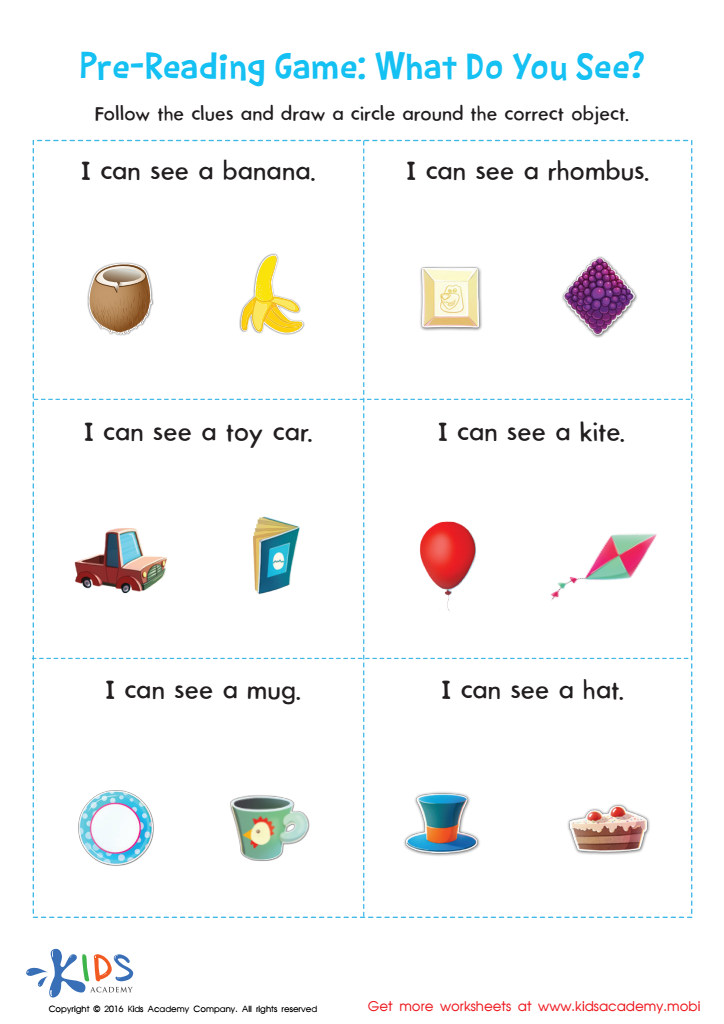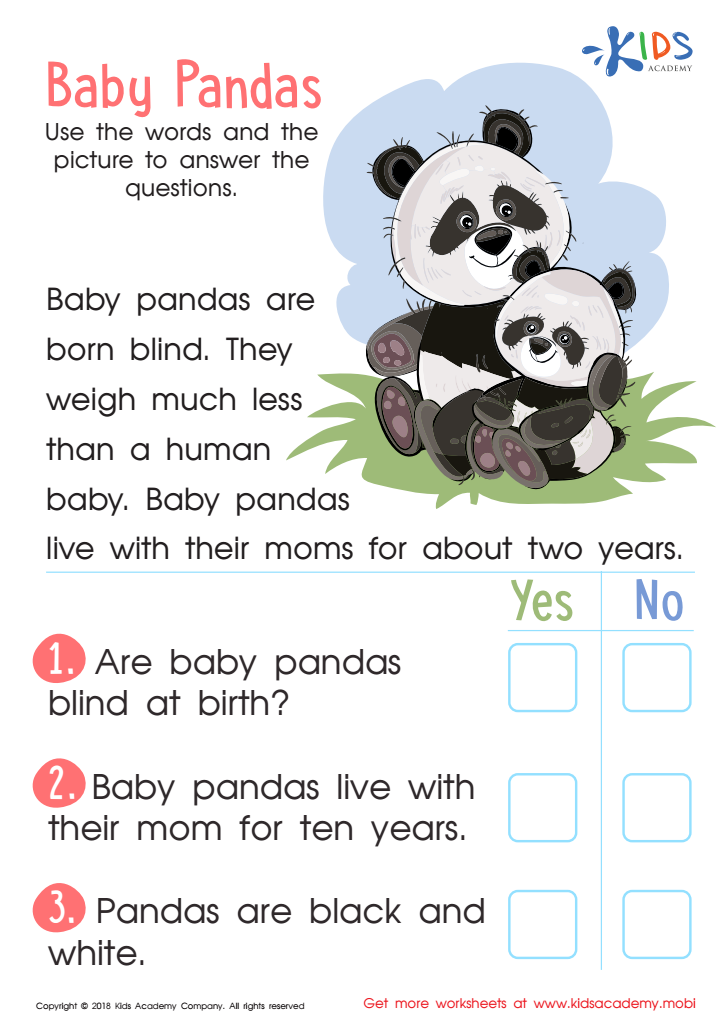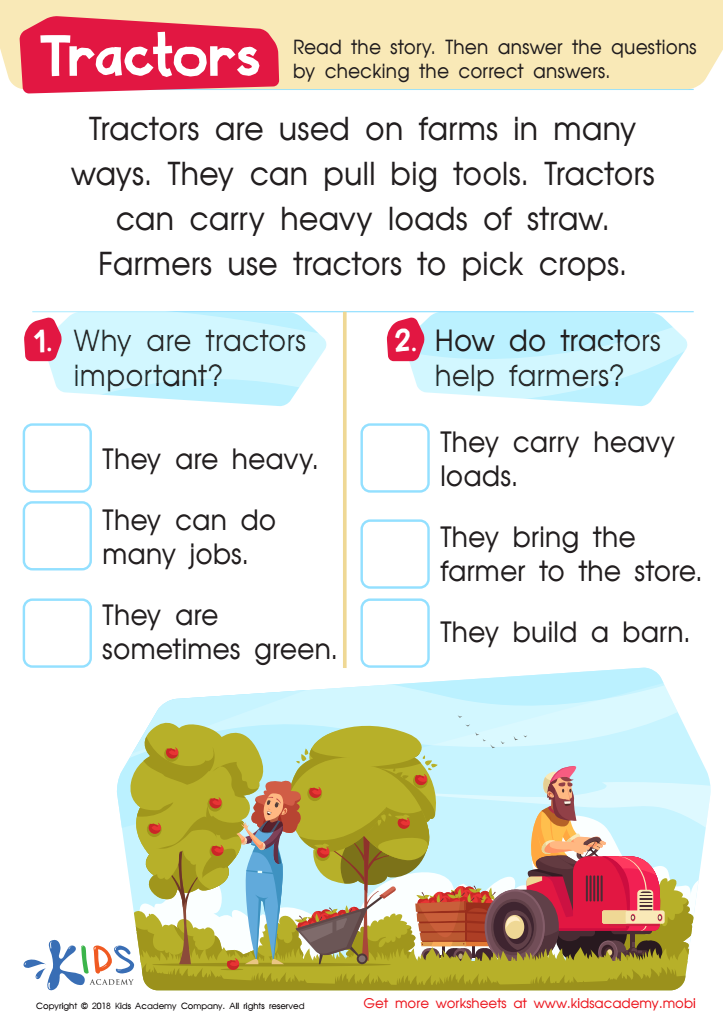Counting practice Reading Non-Fiction Worksheets for Ages 5-9
4 filtered results
-
From - To
Discover informative and engaging counting practice worksheets designed for children ages 5 to 9! Our non-fiction reading materials combine essential math skills with fascinating topics, making learning fun and interactive. Each worksheet encourages young learners to explore numbers through vivid illustrations and interesting facts, enhancing both their counting abilities and comprehension skills. Perfect for classroom activities or at-home learning, these resources promote critical thinking and foster a love for reading. Equip your child with the foundations of counting while they delve into the world around them. Start their educational journey today with our exciting counting practice worksheets!


Pre–reading Worksheet: What Do You See?


More Octopus Facts Worksheet


Baby Pandas Worksheet


Tractors Worksheet
Counting practice and reading non-fiction for ages 5-9 are crucial components of early childhood education that lay the foundation for academic success and life skills. Counting practice helps children develop numerical understanding, promoting critical thinking and problem-solving abilities. Mastering basic counting, addition, and subtraction fosters confidence in math, which is essential for everyday tasks, from managing money to measuring ingredients in cooking.
Non-fiction reading, on the other hand, introduces children to real-world concepts, facts, and ideas. It broadens their vocabulary and comprehension skills while sparking curiosity about the world around them. Engaging with non-fiction materials encourages children to ask questions and think analytically, preparing them for future learning experiences.
Moreover, combining counting with non-fiction cultivates an integrated approach to learning. For example, reading a book about animals can lead to counting how many of each species exist, combining literacy with numerical skills.
Parents and teachers should care about these practices because they empower children with essential skills that support holistic development. Investing time in counting and non-fiction reading nurtures a love for learning, encourages independence, and builds a solid foundation for future academic pursuits. By prioritizing these activities, caregivers can significantly impact their child's educational journey.
 Assign to My Students
Assign to My Students















